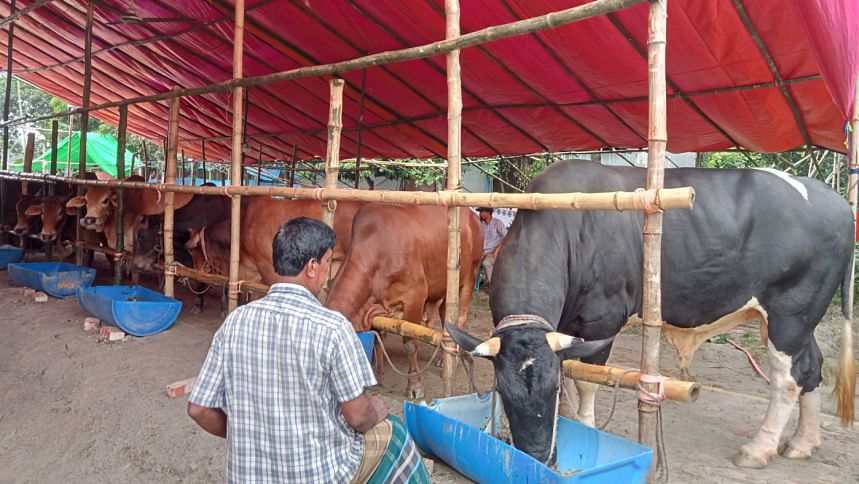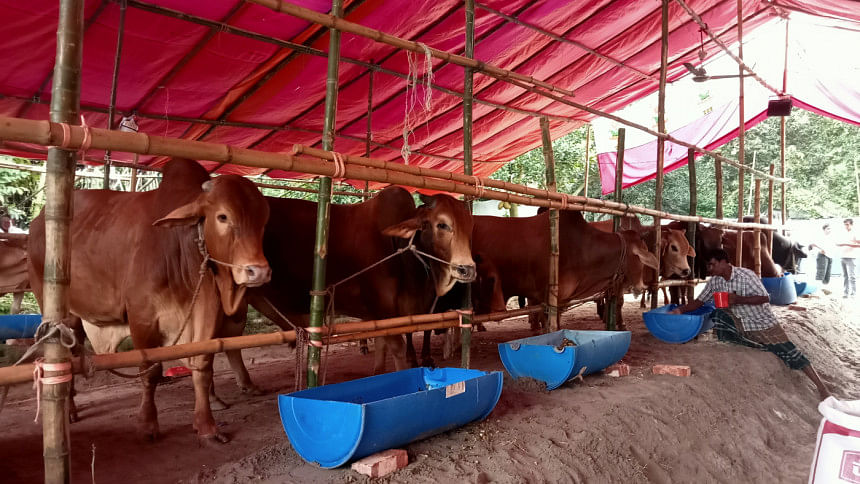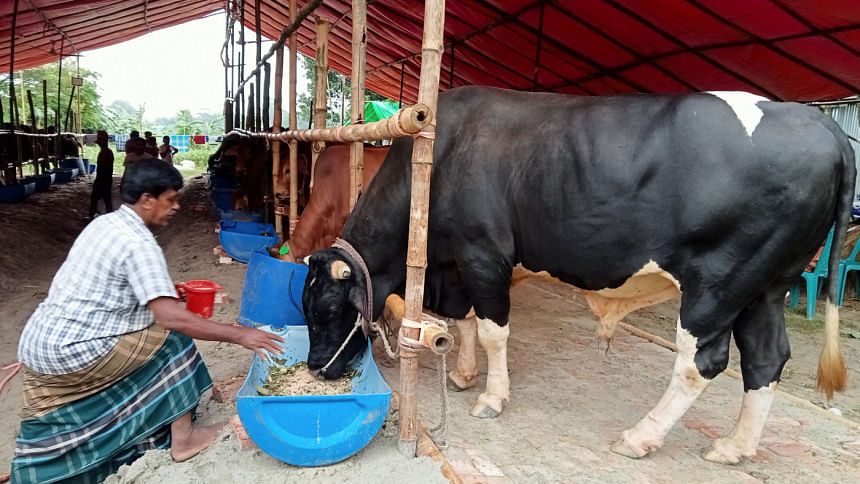Banker shines in cattle farming

Ahsan Sikder took up cattle rearing in 2013, a couple of years after he graduated from Rajshahi University's Marketing department.
He established a small farm with only 10 cows in the suburbs of Charmadhua village in Narsingdi, initially investing Tk 3 lakh.
The capital amount soon grew rapidly, reaching Tk 2 crore in a span of just 10 years.
Ahsan, who also serves as a private bank manager in the district, rears cattle for two purposes, firstly for selling cattle during the Eid season and secondly for selling dairy products.
The farm stretches across 1,600 decimals of land, with the pastures all being mowed with machines. It employs six permanent staff alongside villagers who mostly work part-time. A veterinarian keeps close tabs on the animals, shared Ahsan.

His Green Agro dairy farm, which produces about 5-6 maunds of milk daily, helps suffice the local demand.
"A litre of milk costs Tk 80-100. However, I sell my produce for Tk 35-40 per litre," he added.
He collects heifers from the neighbouring markets and his dairy farm, and prepares them as sacrificial animals. The prices usually range between Tk 40,000-60,000, based on quality.
Ahsan, 40, has prepared 150 sacrificial animals and another 25 cows for the dairy farm, marking the upcoming Eid-ul-Azha.
"Most of the cattle here are reared naturally. The process is cheap and rewarding. More such farms can lead to developing the country's economy in the long run," asserted the cattle farmer.

However, Ahsan fears his farm will not see the expected profits this Eid as the production costs were comparatively higher this year.
"The fodder costs have risen by around 15 percent, and with that of daily commodities rising rapidly, we had to sell off 56 cattle with meagre profits, cutting down the margins by Tk 15,000–20,000 per bull or cow.
According to the Department of Livestock Service in Narsingdi, 887 farm owners reared 87,880 sacrificial animals against a demand of 75,000.
Of the animals, 29,414 are bulls, 6,502 oxen, 5,226 kines, 1,875 buffalos, 33,405 goats, and 11,406 rams. In addition to these, a few thousand more were prepared by independent farmers.
Cattle are reared every year, marking Eid. The animals are bought and fed grass, maize, straw, chickpeas, soybeans, and husk for 6–11 months before they are ready for sale.

"I prepared 25 cattle, investing Tk 30 lakh. We had to buy a sack of husks for Tk 2,070, which we bought for Tk 1,300 last year," informed Mohammad Ali, a farm owner in Shibpur's Beherdia.
However, the price of live sacrificial animals has increased to Tk 480–550 per kg from last year's Tk 400–500, a very small margin compared to the rises in production costs, he added.
Ershad Chowdhury, owner of Hamba Farm in the district Sadar's Virinda area, said, "We have already sold half of our sacrificial animals online. Those have been delivered to the customers' homes three days prior to Eid. However, the profit margins were very low due to the rising production costs."
Nargis Khanom, deputy director at the Narsingdi District Livestock Office, said, "We have an extra supply of 11,000 sacrificial animals. Thus, the prices are comparatively lower this time. Nevertheless, we are closely monitoring the farms to keep them from using harmful chemicals on the animals."

 For all latest news, follow The Daily Star's Google News channel.
For all latest news, follow The Daily Star's Google News channel. 



Comments